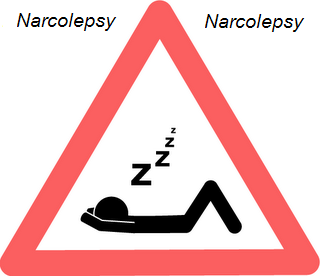Tests
Like this woman that you see on the picture, i have also been like that in the hospital.
A narcolepsy diagnosis requires several tests. A doctor will perform a physical exam
and an in-depth medical history to rule out other causes of symptoms.
Keep in mind that having some of the major symptoms of narcolepsy
doesn't necessarily mean you have narcolepsy.
In addition, several specialized tests, which can be performed in a sleep
disorders clinic, usually are required before a diagnosis can be
established. Two tests that are considered essential in confirming a
diagnosis of narcolepsy are the polysomnogram (PSG) and the multiple
sleep latency test (MSLT). In addition, questionnaires, such as the
Epworth Sleepiness Scale, are often used to measure excessive daytime
sleepiness.
Epworth Sleepiness Scale
During the Epworth Sleepiness Scale test, you will be asked to
answer eight questions using a scale from zero (not at all likely to
fall asleep) to three (very likely to fall asleep). The resulting total
score is between 0 and 24. Scores of 0 to 10 are normal. Total scores
above 10 generally warrant further investigation.
Polysomnogram (PSG)
A sleep study, or polysomnogram (PSG), is a test performed in a
sleep lab. It electronically transmits and records specific physical
actions of the body while you sleep, such as muscle movement, breathing
patterns, and brain activity. The recordings are analyzed by a qualified sleep specialist to determine whether or not you have a particular sleep disorder.
What to Expect During a PSG
If you're scheduled for a PSG, you will arrive at the sleep lab
about two hours prior to bedtime without making any changes in your
daily habits. You will be assigned to a private bedroom in a sleep
center or hospital. Near the bedroom will be a central monitoring area,
where the technicians will monitor you while you sleep. You will be
hooked up to equipment that may look uncomfortable. However, most people
fall asleep with little difficulty. Your whole night's sleep will be
monitored and recorded.
Multiple Sleep Latency Test
Performed the morning after the overnight polysomnogram, also in a
sleep lab, this test measures how long it takes a person to fall asleep
(sleep latency) during the day. During this test, you will be asked to
take four or five scheduled naps every two hours. The first nap starts
two hours after awakening that morning. People with normal sleep and
alertness take about 10-20 minutes to fall asleep. People with
narcolepsy (and other causes of abnormal sleepiness) take a much shorter
time (less than five minutes) to fall asleep.
Two weeks prior to these tests, you will be asked to keep a sleep diary that records bedtime, wakeup times, and nap times. Your doctor will work with you to create a plan to gradually eliminate mediacations that could affect the sleep test results.
source : http://www.webmd.com/sleep-disorders/guide/diagnosing-narcolepsy























